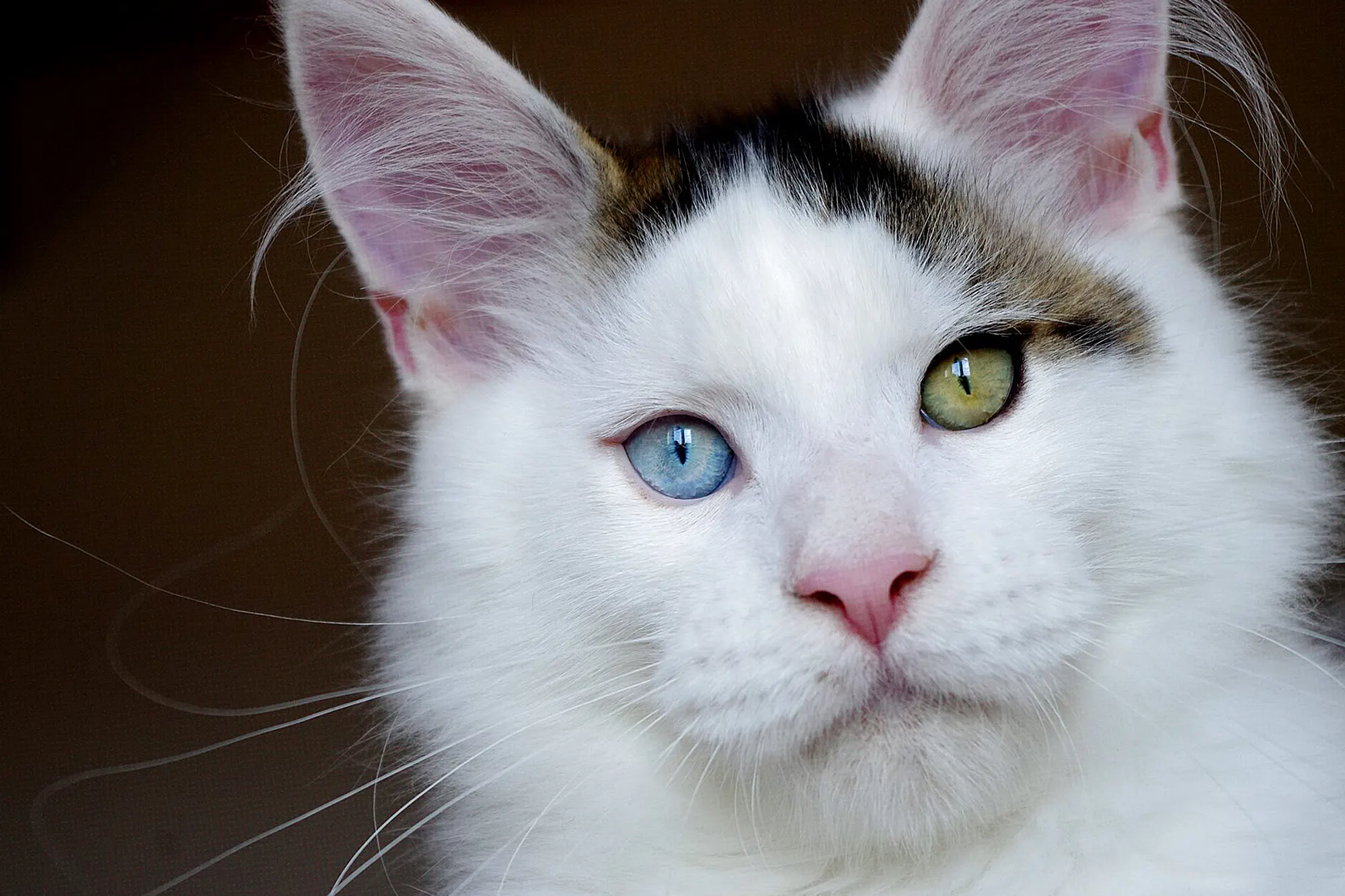Maine Coon Cats are one of the most popular and beloved cat breeds in the United States. They are characterized by their large size, friendly demeanor, striking appearance, and playful behavior. In this blog post, we will explore everything you need to know about Maine Coon Cats from their history to diet to health issues and housing options. Whether you are a long-time owner or just considering adopting one, this guide will provide valuable information covering all aspects of this amazing breed.
 The Maine Coon At A Glance
The Maine Coon At A Glance
Family: Felidae
Class: Mammalia
Lifespan: 12-15 years
Length: 30-40 inches (including tail)
Weight: 13-18 pounds (male), 8-12 pounds (female)
Energy Level: Moderate to high
Personality: Friendly, social, affectionate, adaptable, intelligent, playful, independent
Temperament: Calm and even-tempered
Intelligence: An intelligent breed, capable of learning tricks and commands
History Of The Maine Coon Cat
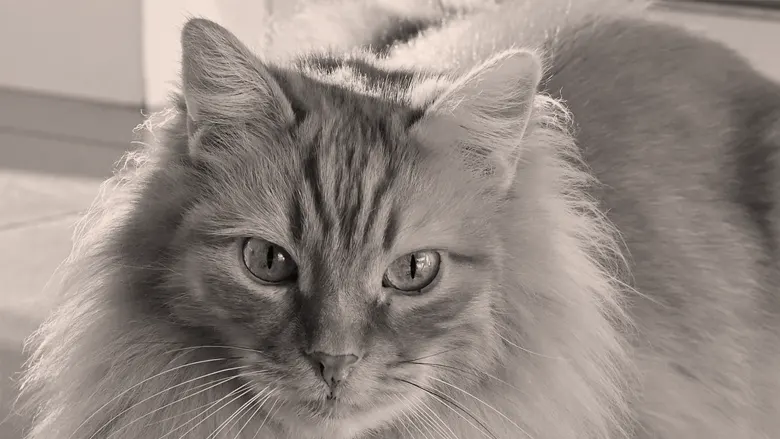
Maine Coon Cats have a rich and intriguing history, tracing their roots back to the early settlers of North America. It is believed that they originated from a crossbreeding between short-haired domestic cats brought by seafarers and long-haired cat breeds from Europe.
Some myths even suggest that they are descendants of a cross between a domestic cat and raccoon, though such a breeding is naturally impossible. The breed gets its name from the state of Maine, where it is also the official state cat. Maine Coon Cats gained massive popularity in the late 19th century but faced competition from other breeds, nearly losing their pedigree status. However, dedicated breeders in the 20th century helped to revitalize the breed, and today they are one of the most popular cat breeds in the United States.
Physical Appearance and Characteristics
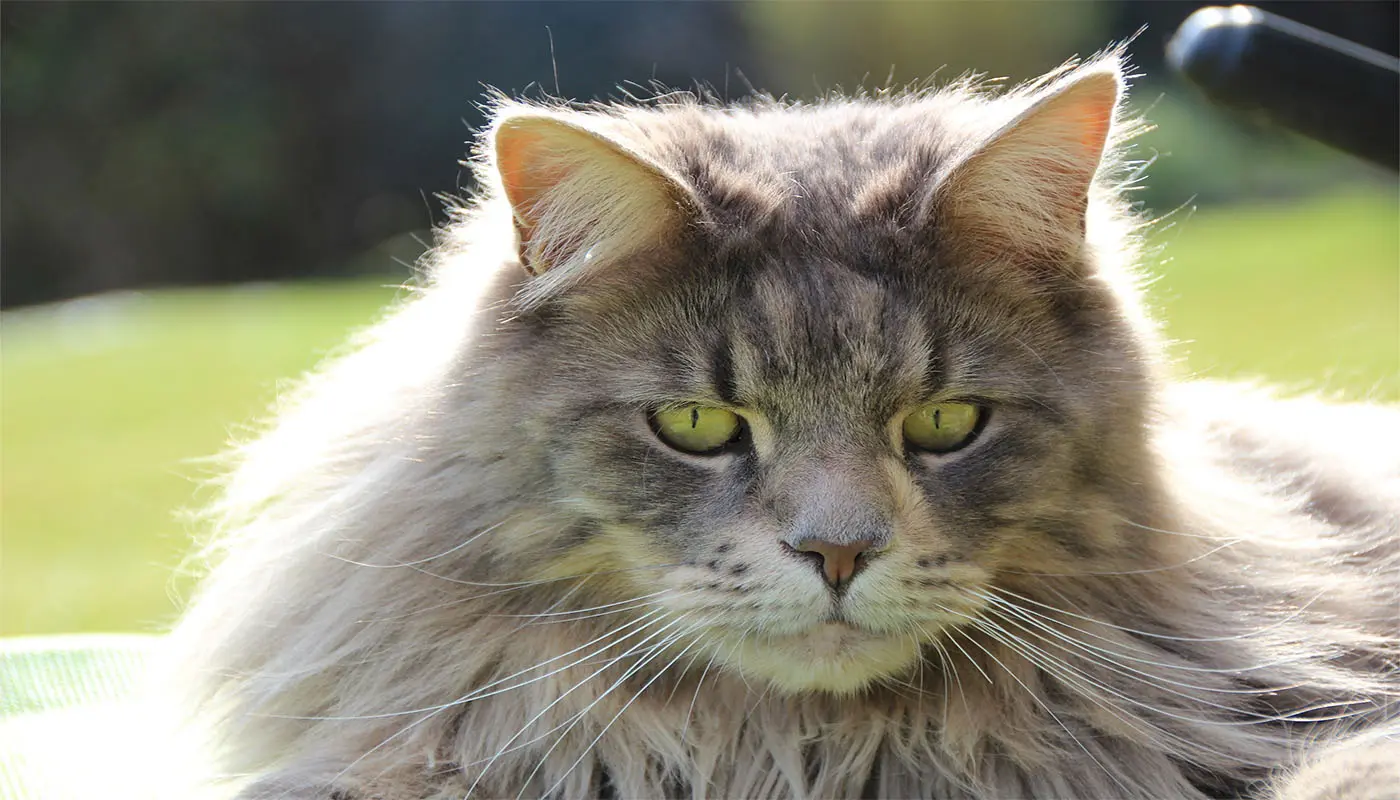
Maine Coon Cats are known for their massive size and striking appearance. Males can weigh between 13 to 18 pounds, while females typically weigh between 8 to 12 pounds. They have a muscular body, broad chest, and sturdy bone structure, allowing them to support their large size.
One of the main characteristics of a Maine Coon Cat is its fur. They have long, thick, and water-repellent coats designed to protect them from harsh climates. Their fur varies in length, with a dense and bushy tail that helps them maintain balance. Maine Coon Cats have large ears, often adorned with tufts, and expressive almond-shaped eyes that can be green, gold, or copper.
Maine Coon Cats come in various colors and patterns, including solid, tabby, calico, and tortoiseshell. Additionally, some cats exhibit a unique “lynx-like” appearance with ear tufts and facial hair resembling that of a wild lynx.
General Behavior and Temperament

Maine Coon Cats are renowned for their friendly and sociable nature, contributing to their admiration as “gentle giants.” This friendly demeanor extends beyond their human counterparts; Maine Coon coexist amicably with children and other pets, making them an ideal addition to diverse household environments.
Despite their large size, they are agile and energetic, displaying moderate activity levels. They are also skilled hunters, displaying a strong prey drive when outdoors. Maine Coon Cats are generally good with children and other pets, making them suitable for families.
One quirk of this breed is their distinctive vocalizations – they tend to emit chirps, trills, and an array of unique sounds rather than the typical meow. This shows their social and communicative nature, creating strong connections with their human families. There’s a reason this cat is our #1 favorite cat.
Maine Coon Cats are renowned for their friendly and sociable nature, contributing to their admiration as “gentle giants.” This friendly demeanor extends beyond their human counterparts; Maine Coon coexist amicably with children and other pets, making them an ideal addition to diverse household environments.
Diet and Nutritional Requirements

1. Protein-Centric Diet
Like all cats, Maine Coon Cats are obligate carnivores. This means their bodies are designed to metabolize nutrients efficiently from animal-based proteins. Proteins should therefore be the primary component of their diet, with high-quality meats as the main source. A protein-rich diet aids in muscle development, maintaining their unique heavy muscular frame, and supporting their overall bodily function.
2. Quality Fat and Minimal Carbohydrates
Maine Coon Cats also require a moderate amount of good fats in their diet, which provide essential fatty acids and are the most efficient source of dietary energy for cats. Apart from providing energy, dietary fats contribute to skin and fur health, which is especially important considering the Maine Coon’s long, opulent coat.
Carbohydrates, on the contrary, should be minimal in their diet. Unlike humans or dogs, cats have limited ability to digest and utilize carbohydrates, and excessive intake can lead to obesity and related health problems.
3. Commercial Cat Food vs Homemade Meals
Quality commercial cat food, specifically formulated for large breeds, often provides a balanced diet that caters to their unique nutritional requirements. Always look for food where real meat is listed as the first ingredient and avoid those with artificial fillers, additives or excessive grains.
While homemade meals can also be a good way to control what goes into your cat’s diet, preparing a cat diet at home requires a detailed understanding of feline nutritional needs to ensure it is balanced and complete. If you choose to feed your Maine Coon home-prepared meals, it is advisable to consult with a feline nutritionist or a veterinarian to ensure all nutritional bases are covered.
4. Importance of Hydration
Hydration is critical to a Maine Coon’s diet. While many cats tend to have low thirst drives, leading to low water intake, it’s vital to encourage them to ingest enough water to support kidney function and overall health. Wet cat food can provide a good source of hydration, and keeping fresh water readily available is a must.
5. Snacks and Treats
While treats can be a valuable tool for training, and enjoyable for your cat, they should be given in moderation. Many commercial cat treats are high in fat or carbohydrates and can contribute to weight gain if fed excessively. One useful tip is to keep the treats’ calories to within 10% of the cat’s daily caloric intake.
6. Regular Weight Checks
Because Maine Coon Cats are prone to obesity, monitoring your cat’s weight and body condition regularly is key to ensuring that their diet is meeting, but not exceeding, their needs. Regular vet check-ups including weight checks and dietary advice can help maintain your Maine Coon in optimal health.
Health Issues and Care
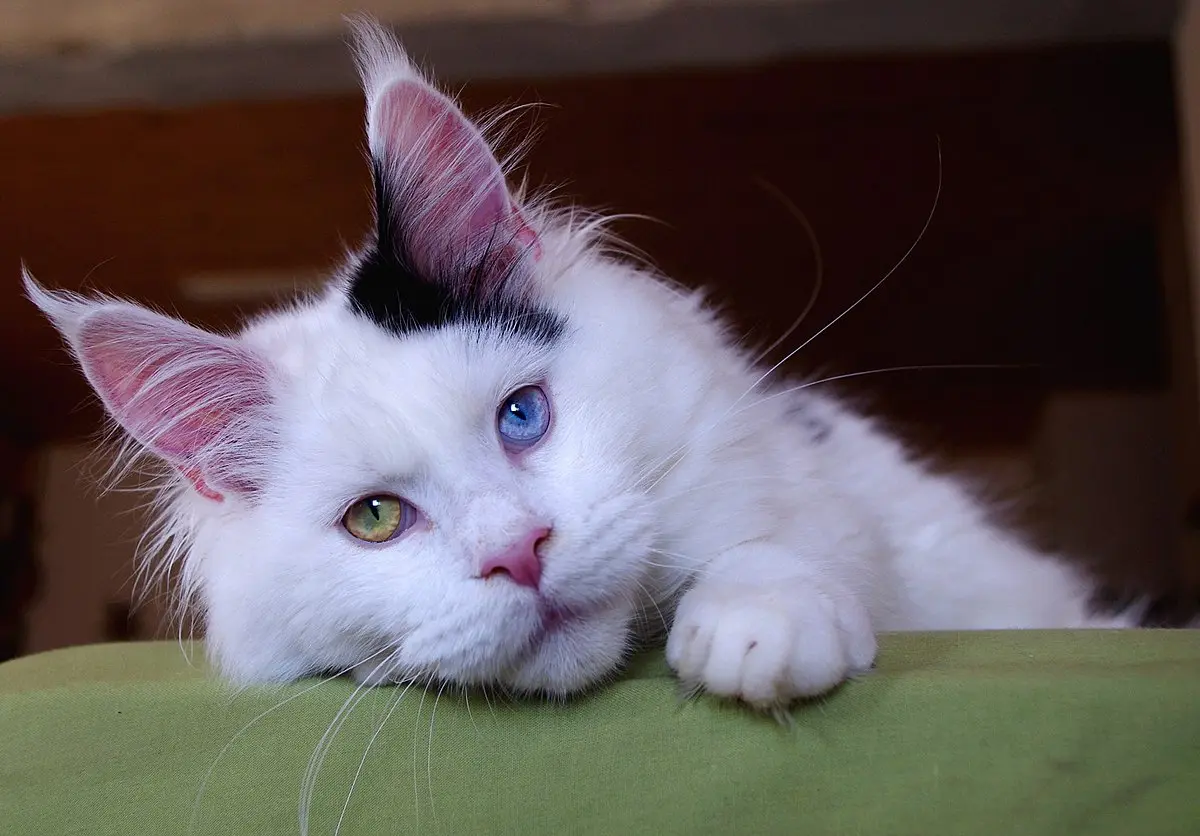
Some common health problems in Maine Coons include hip dysplasia, feline hypertrophic cardiomyopathy (HCM), and spinal muscular atrophy (SMA).
To ensure the health of your Maine Coon, regular veterinary checkups, vaccinations, and parasite control are crucial. Monitoring and maintaining a healthy weight while addressing any health concerns early is key to maintaining your cat’s overall health and wellbeing.
Housing Options
Maine Coon Cats are versatile and can adapt to various living situations. While they can thrive as indoor cats, they enjoy spending time outdoors due to their hunting instincts. Providing a secure outdoor space such as an enclosed garden or a catio, where they can safely explore their environment, is highly beneficial.
When housing Maine Coon Cats indoors, it is essential to provide them with plenty of vertical space, such as cat trees and shelves. They enjoy high vantage points to observe their environment from a safe distance. Additionally, offering interactive toys and mental stimulation is crucial in keeping them entertained and maintaining their overall wellbeing.
Grooming and Hygiene
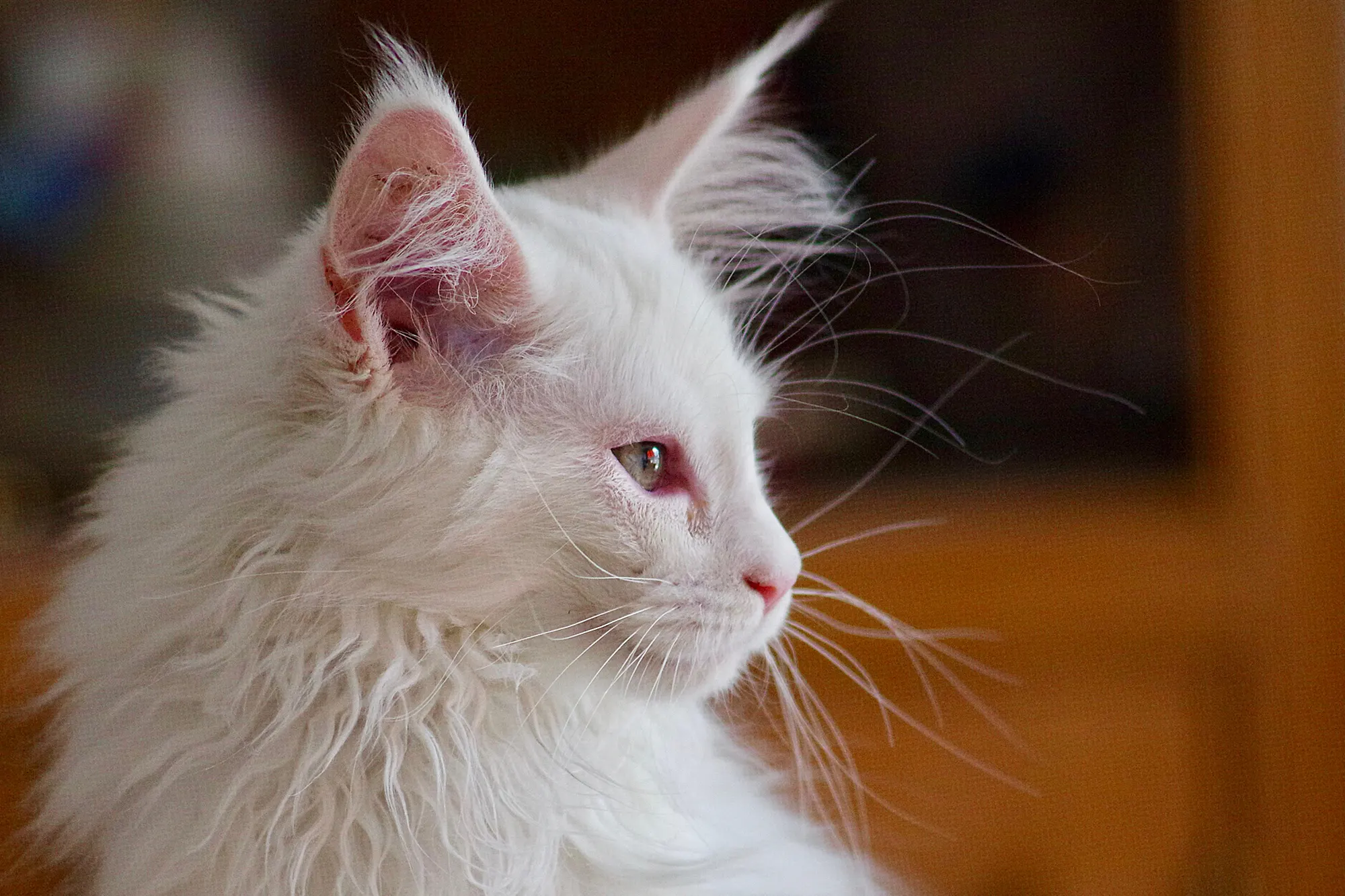
Maine Coon Cats do require regularly grooming to maintain their long and beautiful fur. Brushing their coat at least twice a week helps to prevent matting and tangles, removing loose hair and debris. Occasional baths can also be helpful in maintaining their coat’s cleanliness.
Trimming their nails every few weeks and cleaning their ears regularly is also important in ensuring their overall hygiene. Lastly, promoting proper dental hygiene by brushing their teeth with cat toothpaste and providing dental treats can help in preventing dental issues.
Conclusion
Maine Coon Cats are undoubtedly one of the most enchanting and endearing breeds. With their large size, striking appearance, and gentle nature, they have easily won the hearts of many. By understanding their history, behavioral traits, dietary needs, health concerns, and housing options, you are better equipped to provide the best care possible for your Maine Coon Cat. With proper care, love, and attention, you and your furry friend will enjoy a long and happy life together.
